- Home
- catt dahman
George's Terms: A Zombie Novel (Z Is For Zombie Book 1) Page 2
George's Terms: A Zombie Novel (Z Is For Zombie Book 1) Read online
Page 2
“I’m George, Honey.”
“Daddy was all sick...it was stinky.” She cried again, sucking her thumb and hiding her face against her mother’s shoulder. “I want Daddy fixed.”
Big Tink grinned at Gina. “Let me rock her.” Tink was a massive man, six and a half feet tall, still with much of his muscle tone, big boned, and heavy, but children never feared him; he was a giant teddy bear to them. He took Katie and she allowed him to rock her as he sang softly.
“He has…had Red,” Gina said softly. The virus had some technical mumbo-jumbo name, but no one ever said its name, just called it Red for all the bleeding it produced.
“They said on TV that almost everyone does,” Thurman said. He was a dark-skinned black man with warm amber eyes and his hair and light beard were white. Everyone found him confusing since he didn’t understand racial lines; for whatever reason, he simply didn’t get the concept of prejudice and always just shrugged and claimed, “Folks don’t know better” or “Weren’t raised right.” If someone showed judgment, Thurman would not allow it to be based on learned racial reasons, but on just having a bad soul.
George told Gina that they had a theory about Agent Orange, and, if they were right, it had left a bunch of old war vets that were once a strong generation, unable to reproduce. “And if you notice, lots of times, siblings or a parent and child are immune. A genetic thing, maybe.”
“I heard that, too,” Gina said. “Jeff got worse and went into a coma or a deep sleep maybe…”
“And you can’t get to a hospital.”
“No hospitals,” Benny agreed. He came across as the scatterbrain of the foursome but was, in fact, the brightest of the group, the most widely read, and had a surprisingly high IQ. Also the smallest, he was the most inclined to aches and pains of advanced age. “I’m Bennie,” he reminded Katie.
“I had the back door open, airing out the smell…and went in…Oh, my, God, Jeff attacked me, came after me. If he hadn’t tripped over the bedding…” She glanced at Katie to get her meaning across.
“Daddy was playing monster,” Katie said, “but it wasn’t funny then, was it, Mommy, not a bit funny?”
“Not at all.” Gina wiped her nose on her sleeve and sighed. “I grabbed Katie and the keys, but Mr. and Mrs. Perez were blocking the door. We circled the rooms and got out, but that boy was there. We just ran.” She again thanked the four men for saving their lives. She looked exhausted.
“The boy and the man were attacked and…turned...whatever you call it, infected, I guess. They take a while with Red, but they turn fast…get infected, if bitten.” Tink looked the bodies over. He didn’t say more with Katie listening.
Gina winced.
“Where’s daddy?”
“Katie, love,” Gina was helpless to continue. She wept.
“Your Mama can explain it better to you later, but he’s gone now; he went on to another place and is at peace,” Thurman said.
“Heaven?”
“I ‘spect so.”
“Okay.” Katie took a deep breath after hugging her mother and laid her head on Dallas.
Tink, George, and Thurman went out to pull the bodies over to the next yard where they covered them with a tarp. For them, digging graves was almost more than they could handle; the smell was vile.
Benny arranged things upstairs and down so Gina and her daughter would have a safer place to sleep.
After washing up, Gina and the men worked on securing the house. Storm shutters had been installed since George was a bit of a survivalist. Until that moment, seeing those things chasing the pair hadn’t seemed real; it had been like some never-ending movie on the television.
“It’s real,” George said to Thurman.
“Seems so. I was hopin’ it wasn’t…no cure, people turning into those things…they’ve known a while we had no hope…that’s why it was easy to close hospitals and shelters…or to shoot looters and all….’cause they knew we weren’t gonna make it. Half the country is sick.”
“Some of us will.”
“It’s looking bad, G.”
“Yep. And ya know this was like the movies, but those weren’t dead people coming at us. Kind of liked ‘em though.”
“You’re right. I never watched those movies though. They were alive, kind of… but messed up. They didn’t feel pain and were like…”
“Alive, but only sort of. Half alive,” Thurman said.
“That’s worse and better, I think. I can see why they said they were sick, but I also see why they called ‘em zombies.”
“Zeds.”
George chuckled. “Too new-fangled for me. Monsters.”
He and Thurman sat down on the porch, watching for movement, knowing the smell outside would soon go foul.
Benny came out, silently closing the door. “We have a problem.”
“Besides the zombies attacking us today?”
“Besides that.”
“Lay it on us; what’s wrong now?”
“Gina showed me under her sleeve; she’s been bitten.”
George ran his fingers through what remained of his hair, sighing. That was a big problem.
2
Hospital
In another time, news would have been slow with a lack of collective knowledge about the virus that swept the world; however, the Internet was a modern wealth of information. Like lightning, savvy teens and nerds alike have viral videos and Face Book pages up with not only theories, but also trendy terms and helpful nicknames for the ill. The Red Zed page was swamped by ‘likes.’
An infected was called a zed, short for the z in zombie. Because of the nature of the illness, the one who went through the stages would almost always bleed out and be called a red zed. Later, the ones dispatched were dead zeds, and those decapitated were zed heads. A friend who succumbed was Fred Zed. One who attacked or was in the midst of an attack and cannibalized was a fed zed. A person in the medical field in uniform and sick, was a med zed.
It was very creative.
Beginning in Asia, the infection was reported to be a hemorrhagic virus, a type of Lyssa virus that mated with another Lyssa virus which may or may not have joined a prion, in other words, bleeding meets rabies meets mad cow. What they knew was that people contracted hemorrhagic symptoms and bled viciously, and then suffered a coma-sleep-like state while the viruses mutated.
In the third stage, the patient awakened with rabies-like symptoms, anger, and violence. The brain showed holes like mad cow disease, but was also functioning to support the anger and the attacks on others in order to transmit the virus, and to show the lack of pain and recognition of friends and family. It seemed to wipe away everything but the most basic of life’s functions, and the need to reproduce the virus. Technically, the resurrected victims were alive, but were left as puppets to the mutated virus.
All anyone knew was from the Internet and news reporters, and mostly, the reporters had only rumors and reports from other places, but, yes, a vaccination was in the works. Maybe. Possibly. They doubted anything would be available soon if all those things had indeed joined to become one super virus.
No one knew where the virus had come from, but everyone whispered about a terror attack.
The virus began with swollen, painful joints that locked up, tiredness, fever, and headaches; then, the bad stuff started with stiffness in the face and jaw, drooling, diarrhea, vomiting blood and nose bleeds, anger and violence, frenzy, and finally a coma. The hospitals, with military help, had set up emergency stations for all of the ill, clearing the hospital buildings of all usual illnesses; all of the victims of the virus had the same symptoms, had to be cared for, and then had to be isolated.
But the medical staff was over-whelmed and was overcome with so many patients that the doors had to be closed to the infected, who had to be guarded by the few military that were healthy. Everyone had been told to stay home by the order of martial law. It was already brutal. The only thing that kept the remaining military from being over-run w
as that most were simply too sick to leave their beds, much less their homes.
It was devastating as more had succumbed, but the worst part was laying in wait in the brains of the victims. After lying in a coma, the patients woke, angry and violent, alive, but no longer in control of themselves, and they had attacked others, biting, clawing, and even eating parts of their victims with an insatiable hunger. Or so the reporters claimed that the victims did this across the ocean.
Those who had been immune to Red as an air-born virus, had not been immune to the deadly saliva that had dripped from the mouths of the attackers. The viruses, with their prion hitchhiker, had entered the bloodstream and turned the new host into a shambling, frenzied monster, quickly. Hence, the terms: “zed or zombie.”
Eyes glued to the television or computer screen, people watched as North Americans had begun falling ill; in Atlanta, Tampa, New York, Los Angeles, Seattle, Houston, Dallas, and everywhere in between. It was in the air. Within forty-eight hours, most of the US population was in some stage of the illness.
Reports said the first victims of the plague were out of their comas and attacking people. The military was under orders to shoot.
Beth watched the television in the cafeteria, seeing people biting, taking down others, eating them, and armed soldiers killing them with shots to the brain and heart. The screen was filled with screams, panicking reporters, images from nightmares of raging, uncontrolled fires, massive car pile-ups, carnage on the streets, looting, and terror. She, like everyone else that was watching, stared at the screen in disbelief.
It was the way he had turned his head, pulled down his yellow-tinted Hank Williams, Junior, glasses to watch something behind her that had forced Beth to turn around against her will.
Behind her was a young, black man, clad in shapeless, white pants that billowed around his legs, his feet and chest were bare. In one hand, he held a big bottle of beer wrapped in a wrinkled, brown paper bag; he took a drink from the bottle, grinned at people in the cafeteria, and then vanished around a corner, giggling to himself.
The man in the yellow glasses was left to mumble to another man close by. On his head was a large black cowboy hat; his belly hung over a belt that had “Roy” stamped on it; his jeans were too tight, his boots too pointed, and his mouth underneath the droopy mustache, cruel looking. He kept looking everyone over, commenting to himself or to the other man. Maybe to both.
Beth was tired, she had never been more tired, and wanted to lie down and sleep. Instead of just curling up and hiding in her apartment, she went to the hospital to donate her blood, but then couldn’t leave. She found herself with scores of others who were also donating their blood, answering questions about their immune system, being examined, being punctured by needles, and then being told they had to remain as no one was allowed on the streets. They didn't know what else to do.
After a while, there were fewer technicians and doctors to do research, fewer military, no one really keeping the order, but a lot of people had stayed at the hospital willingly, the one place where there had been plenty of living and awake people. No one had wanted to be alone.
Rumors had it that patients in the makeshift hospitals were either still in the first stage of the disease, bleeding from all of their orifices, or in comas.
The news from Great Britain was that the ill were awake, angry, in a frenzy, and attacking everyone they could find. The news from Europe was that the people were being attacked by their own residents, while Africa, the Asian countries, the South American countries, and the Middle East, were completely overrun by what the media had called zeds. The disease hit America after most of the other continents had been hit.
Beth wasn’t positive whether that was true or not. She was scared that people she knew would get up to wander the streets, hungrily. It was a nightmare that she couldn't stand to think about.
The hospital had been cleared of most Red patients and was now being used by the few doctors and nurses who had been left to do research. Schools and other public buildings still, supposedly, were being used for the ill.
For the first time in history, there wasn't a positive message being given out, or hopeful promises, and no real instructions. There was only martial law. Everyone was told to stay at home, to isolate or avoid the infected, to barricade the house, and to prepare to defend their home, property, and self.
It was pretty hopeless.
Beth smiled weakly as Kimball came over to join her at her table. He was an intelligent, tall, long legged man with reddish-brown hair, and ocean blue eyes. In the absence of her brother, Kim was a real find, and it was to him she confided her concerns and the desperation she felt. He and everyone else there felt the same. They walked around, drank coffee, and stared at the television.
"Heard anything?"
"No, you?" she asked. “I’m watching the reports. There are a lot fewer people left to report now.”
"I heard some rumors. Someone said that the US military was considering retaliation."
"Is there even enough military to fight?"
"I think they mean big weapons."
Beth shivered. "The people who were sick…do you think that they died? Or do you believe the rumor that they have become zombies?"
"Zombies. That sounds pretty stupid."
"Zeds."
"No, I know that they're calling them zeds, but I'm saying the whole idea sounds stupid. It's impossible."
"Technically, they are dead, so they aren't zombies, but the disease makes them go crazy." Beth leaned forward, "I heard it's like rabies, the mad cow disease, and something else, all mixed up together."
"Sounds right that some scientist cooked this up in a lab, and someone else used it for terrorism. That's why they're talking about using massive weapons."
"Against whom?”
"I'm sure we're blaming it on the Middle East or some other country across the water. I think what's left of our government is just pissed off and wants to do something," Kimball said.
The large cafeteria in the hospital, along with some offices, long hallways, the generator, the morgue, the pharmacy, supply vaults, exam rooms, the radiology department, and several lobbies, were located in the basement, and that's where most of the people spent their time. Even one of the lobbies had been set up with cots as a place for all of them to sleep.
"New face," Kim said.
Beth looked up and followed his gaze. "No, that's the guy I told you about… one of the military guys assigned here." She had spoken to the man, Bryan, before; he was smart, interesting, and deadly; it was like being caught in an electrical storm, exciting and edgy.
Brian saw Beth and began to walk over. He was dressed in a Marine Corps combat uniform with an M4 slung on his back, his M9 on his hip.
"He’s coming over. You want me to get rid of him?” Kim offered.
"So he can kill you right here?"
Kim laughed.
Bryan walked over and lit a cigarette. When he saw the questioning look on their faces, he shrugged. "I think the rules have changed and we can smoke in a hospital now. No one cares. I saw a fellow in the elevator drinking beer from a quart bottle."
"Yeah, I saw him, too. Things are changing real fast.”
They all watched as a female doctor, her clothing stained and rumpled, grabbed a cup of coffee and hurried out of the cafeteria, hardly glancing around as she left.
Sally, the youngest doctor on staff, was frequently told she looked too young to be a doctor. Normally, she had to turn down dates, but right now, she doubted if any man would look at her. Her hair was a rat's nest pulled up into a ponytail, left over mascara was smudged beneath her eyes, and her armpits were sweat- stained; she felt filthy. Drinking hot black coffee, she hurried down the hallway, back to a new patient.
Technically, the medical staff wasn’t taking any more patients infected with Red, but this one was the last to come in. Here at the hospital, they were operating with a skeleton crew, and Sally was one of the few doctors availabl
e.
A patient, named Jana, had come in with the usual symptoms, swollen and painful joints, high fever, and a headache. Jana should have been sent home like the rest of the people demanding medical treatment, but because she also had a rash, she was admitted. It was something that a nurse had noted and referred to Sally.
Sally went into Jana's room, set her coffee down, and quickly read the chart. Although the diarrhea had almost stopped, Jana still complained of stomach pain and intestinal cramping, her nose had been packed with gauze that leaked blood down to her upper lip, and a kidney-shaped bowl full of bloody vomit sat nearby. Her fever was still high, her blood pressure was low, and the diaper-like garment that they had put on her was full of blood. She moaned; saliva was dripping from her tense jaws. Sally had been trained to handle anything without emotion, but she felt a wave of pity and disgust.
She made a note to get Jana another blanket and set up a new IV bag. The rash had vanished, and Sally decided that this was something else, not related to the disease. According to the CDC, Sally needed to send her home, but the woman wasn't in any condition to walk, and Sally didn't know how she would get her home anyway.
To be honest, when Sally had been assigned to stay at the hospital, she was curious to see how the disease had worked. All the people who had come in to donate blood, be tested to see why they had been immune, should have been sent home by now, but Sally said they could stay, had cots brought in, and had made sure they were fed for free. They could still take quite a few more for shelter.
And the CDC was no longer in contact with anyone.
Millions, with family or alone, were sick all over the world, bleeding and pouring bodily fluids. In a few hours, those same people would be violent, intent on biting those who were immune so the virus could replicate.
The CDC reported that the infection levels were over ninety-nine percent and that the reports from other countries showed that 100 percent of those infected, would go into a coma and then would awaken with the sort of brain damage that induced violent behavior, biting, and cannibalism.

 Z Poc: The Lodge
Z Poc: The Lodge Time of Grace
Time of Grace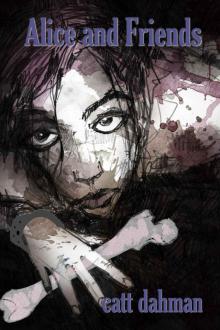 Alice and Friends
Alice and Friends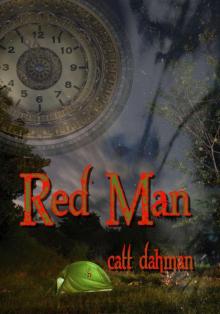 Red Man
Red Man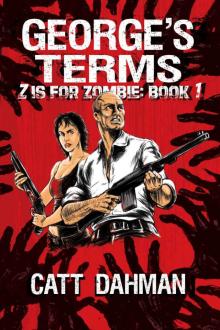 George's Terms: A Zombie Novel (Z Is For Zombie Book 1)
George's Terms: A Zombie Novel (Z Is For Zombie Book 1) Alice In Wonderhell
Alice In Wonderhell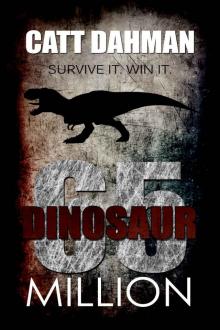 Dinosaur: 65 million
Dinosaur: 65 million Extinction Island 2
Extinction Island 2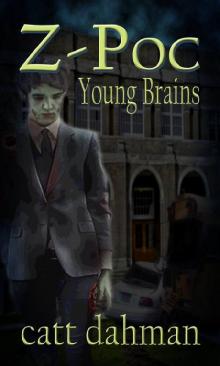 Z Poc: Young Brains
Z Poc: Young Brains Of Guilt and Innocence: Institute at the Criminally Insane (Virgil McLendon Thrillers Book 3)
Of Guilt and Innocence: Institute at the Criminally Insane (Virgil McLendon Thrillers Book 3)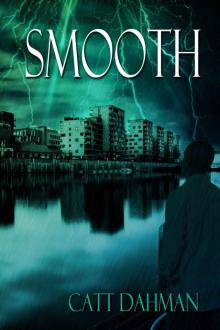 Smooth
Smooth Extinction Island
Extinction Island Of Lost and Found (the Kingsborough House): Kingsborough House (Virgil McLendon Thrillers Book 4)
Of Lost and Found (the Kingsborough House): Kingsborough House (Virgil McLendon Thrillers Book 4) Titanic 1912: A Lovecraft Mythos Novel
Titanic 1912: A Lovecraft Mythos Novel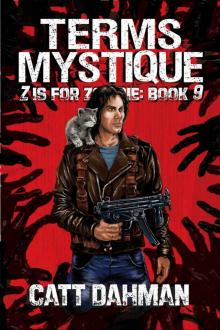 Terms Mystique: Z Is For Zombie 9
Terms Mystique: Z Is For Zombie 9 Wild Boys: Six Shooters and Fangs
Wild Boys: Six Shooters and Fangs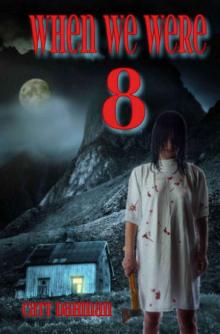 When We Were 8
When We Were 8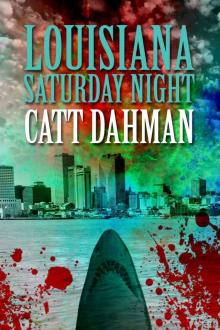 Louisiana Saturday Night
Louisiana Saturday Night Blood of an Empire: Helen of Sparta
Blood of an Empire: Helen of Sparta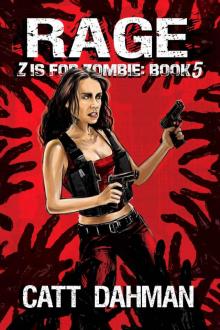 Rage: Z Is For Zombie Book 5
Rage: Z Is For Zombie Book 5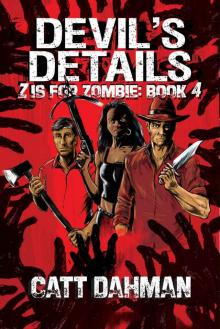 Devil's Details: Z Is For Zombie Book 4
Devil's Details: Z Is For Zombie Book 4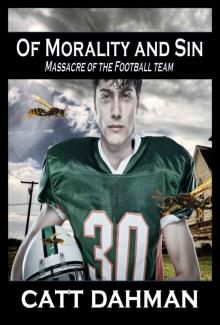 Of Morality and Sin: Massacre of the Football Team (Virgil McLendon Thrillers Book 7)
Of Morality and Sin: Massacre of the Football Team (Virgil McLendon Thrillers Book 7)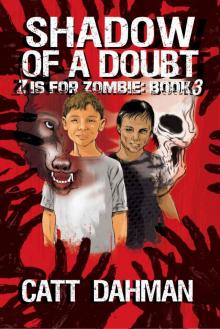 Shadow Of Doubt: Z Is For Zombie Book 3
Shadow Of Doubt: Z Is For Zombie Book 3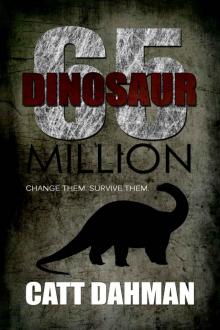 Dinosaur: 65 Million: Book 2 Change Them, Survive Them
Dinosaur: 65 Million: Book 2 Change Them, Survive Them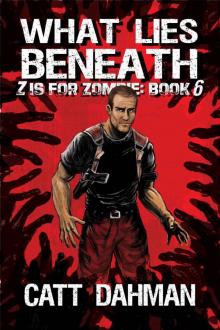 What Lies Beneath: Z is for Zombie Book 6
What Lies Beneath: Z is for Zombie Book 6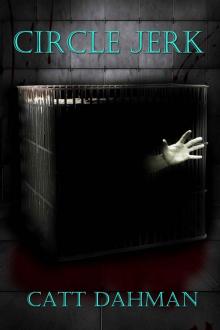 Circle Jerk
Circle Jerk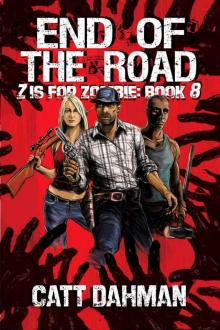 The End of the Road: Z is for Zombie Book 8 (Z is for Zombie: Book)
The End of the Road: Z is for Zombie Book 8 (Z is for Zombie: Book)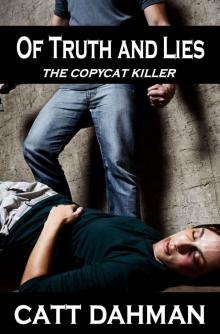 Of Truth and Lies: Hollingsworth Copycat Killer (Virgil McLendon Thrillers Book 5)
Of Truth and Lies: Hollingsworth Copycat Killer (Virgil McLendon Thrillers Book 5)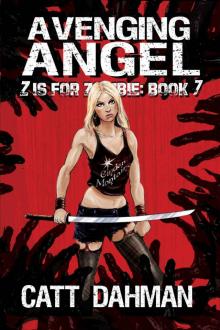 Avenging Angel: Z is for Zombie Book 7
Avenging Angel: Z is for Zombie Book 7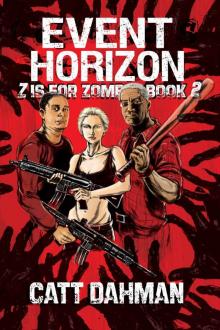 Event Horizon: Z Is For Zombie Book 2
Event Horizon: Z Is For Zombie Book 2 Of Blood and Water: Campground Murders (Virgil McLendon Thrillers Book 1)
Of Blood and Water: Campground Murders (Virgil McLendon Thrillers Book 1)